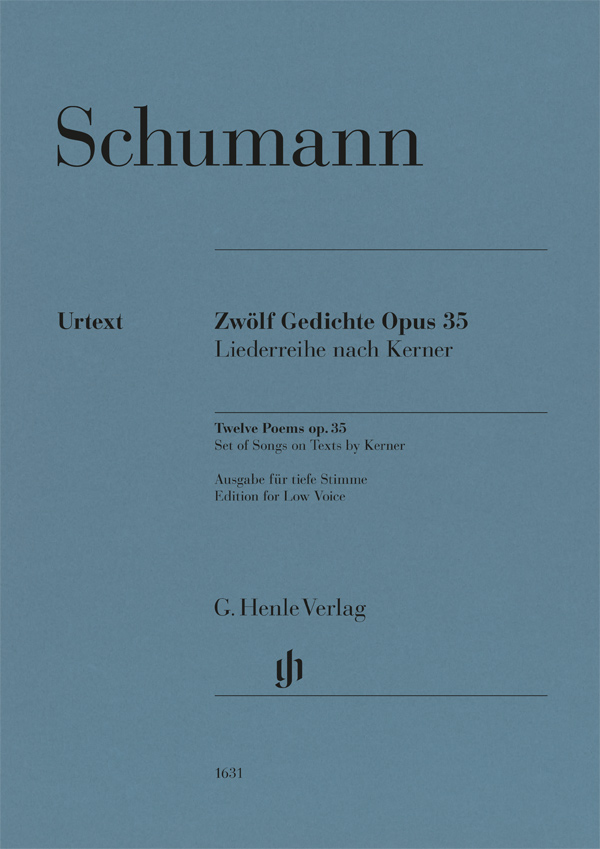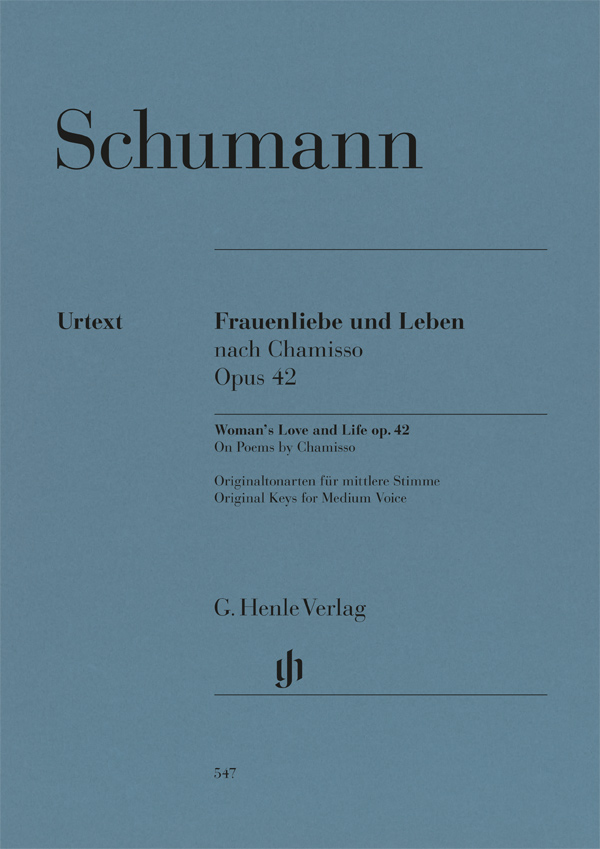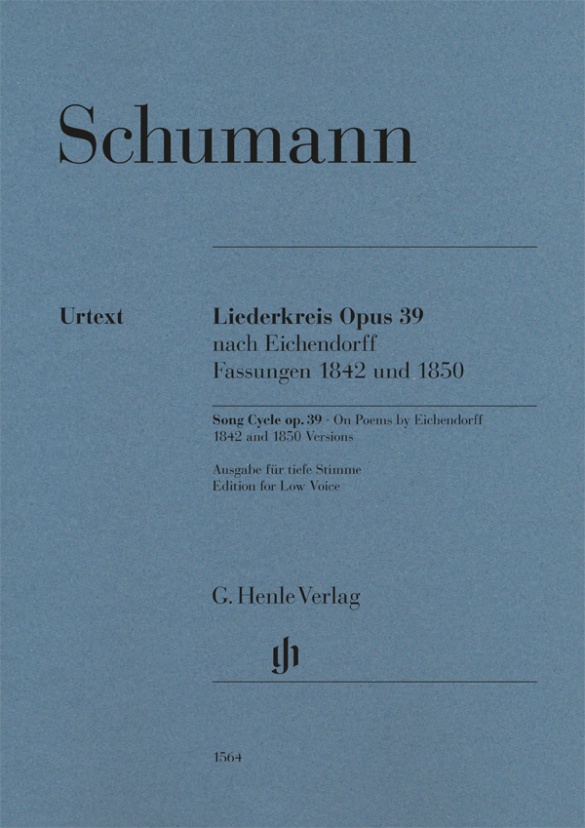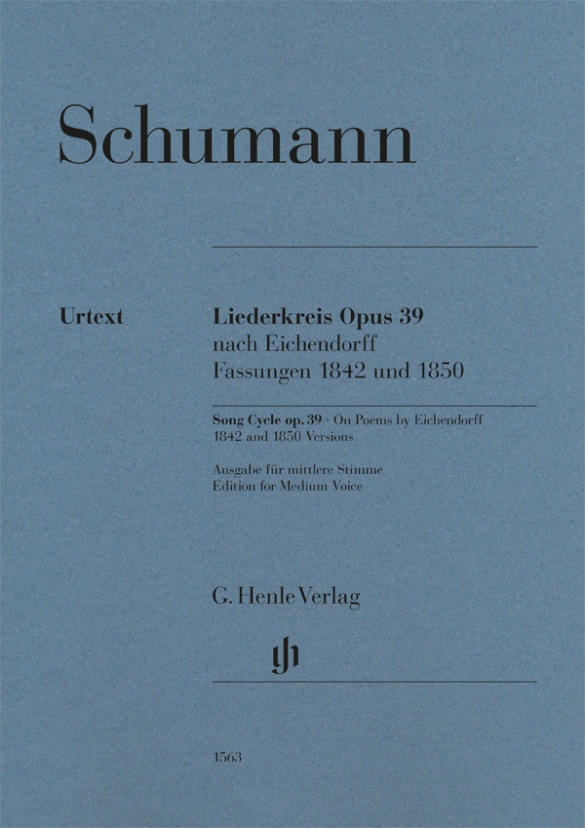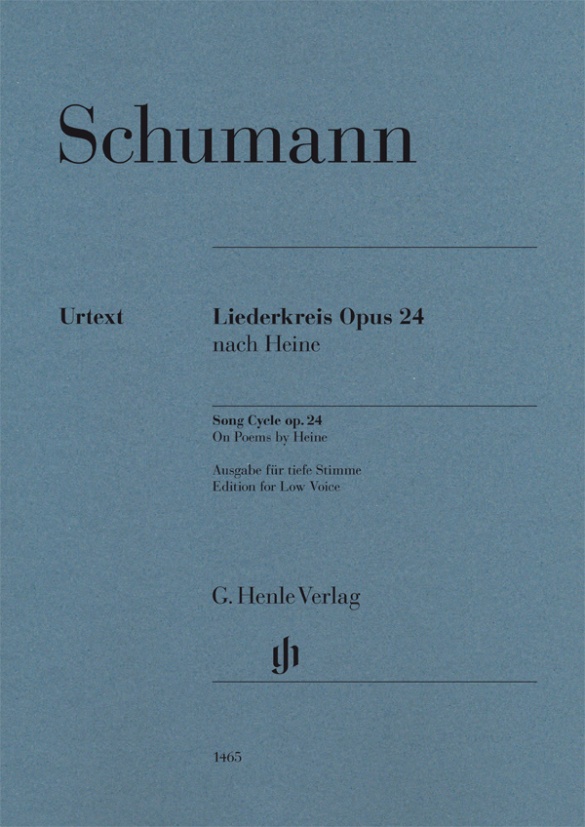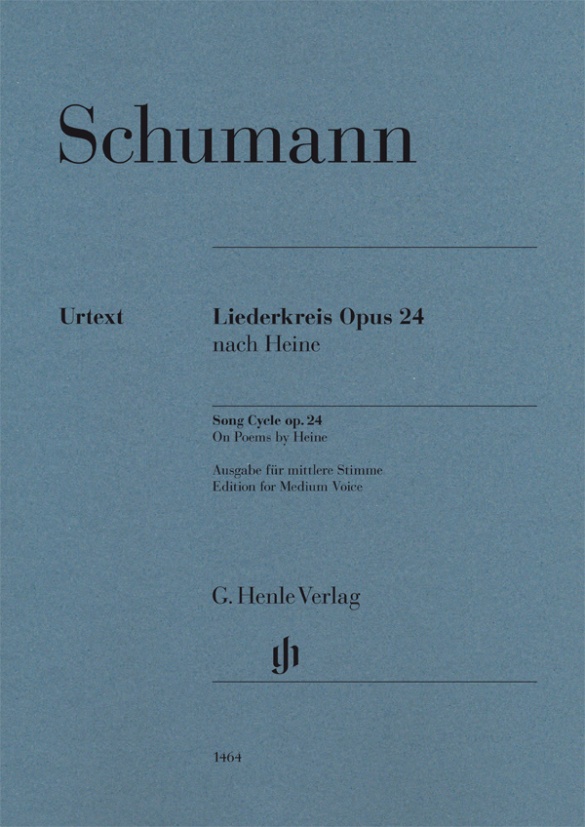Robert Schumann
Twelve Poems op. 35, Set of Songs on Texts by Kerner
As with the Dichterliebe (HN 549), Frauenliebe und Leben (HN 547) or the song cycles with texts by Heine and Eichendorff (HN 548 and 550), the Kerner Cycle op. 35 was written in 1840, Schumann’s “Liederjahr”. Yet it has a special place: it was composed in the time immediately following Schumann’s marriage to Clara Wieck. Schumann set a series of poems to music in November, during a “quiet week, which went by with composing and much loving and kissing”, and the cycle was complete by the turn of the year. It contains a great deal of intimate musical innuendos. The first edition of 1841 was soon followed by a second issue, many of the songs were published individually and the “Wanderlied” soon became a core piece in the repertoire. With Henle’s edition the songs in Schumann’s cycle are once again being published together in a single volume.
The Urtext edition by Schumann specialist Kazuko Ozawa is now also available to singers in a lower register: the cycle has been transposed for medium and low voice in close collaboration with the experienced pianist and Lied accompanist Jan Philip Schulze.
内容/詳細
作曲家について
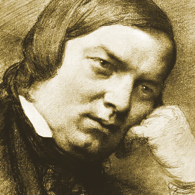
Robert Schumann
Connected with his oeuvre is the term he coined, Poetic Music, with which he strove for a fusion of literature and music, a paradigm particularly seen in his lyric piano pieces prior to 1839. Thereafter he devoted himself to other genres (song, symphony, chamber music, among others).
| 1810 | Born in Zwickau on June 8, the son of a bookdealer. |
| from 1828 | Studies law in Leipzig, piano with Friedrich Wieck. Decision to pursue a career in music. |
| 1830–39 | He exclusively composes piano works, mostly cycles, including “Papillons,” Op. 2 (1829–32); “Carnaval,” Op 9 (1834/35); “Davidsbündlertänze,” Op. 6 (1837); “Kinderszenen” (“Scenes from Childhood”), Op. 15 (1837/38); “Kreisleriana,” Op. 16 (1838); “Noveletten,” Op. 21 (1838). |
| 1832 | A paralysis of a finger in his right hand makes a career as a pianist impossible. Founding in 1833 of the fantasy brotherhood the “Davidsbund” (“League of David”). |
| 1835–44 | Editor of the Neue Zeitschrift für Musik (New Journal of Music). |
| 1840 | Marriage to Clara Wieck; 138 songs, including the Eichendorff Liederkreis, Op. 39; the song cycle “Dichterliebe,” Op. 48 |
| 1841 | Symphony No. 1 in B-flat major (“Spring” Symphony), Op. 38, and Symphony No. 4 in D minor, Op. 120. |
| 1842 | Three string quartets, Op. 41; further chamber music. |
| 1843 | Teacher of composition at the Leipzig Conservatory. Oratorio “Paradise and the Peri,” Op. 50. |
| 1845 | He settles in Dresden. Journey to Russia. |
| 1845 | Piano Concerto in A minor, Op. 54, Symphony No. 2 in C major, Op. 61. |
| 1850 | City music director in Düsseldorf. Premiere in Leipzig of his opera “Genoveva,” Op. 81. Symphony in E-flat major (“Rhenish”), Op. 97; Cello Concerto in A minor, Op. 129. |
| 1853 | Beginning of his friendship with Brahms. Completion of the Scenes from Faust. Violin Concerto in D minor for Joseph Joachim. |
| 1854 | Suicide attempt and admission to the psychiatric institution in Endenich, near Bonn. |
| 1856 | Death in Endenich on July 29. |
校訂者や運指担当者について
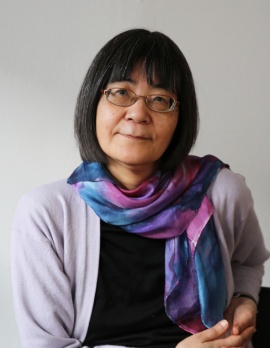
Kazuko Ozawa (校訂)
Kazuko Ozawa, born in 1954 in Mishima, Japan, studied at the Tokyo University of the Arts between 1973 and 1979, doing her MA on Schumann’s Scenes from Faust in the Musicology Department. From 1979 onwards she continued her studies at the University of Bonn, earning her doctorate with a thesis entitled “Quellenstudien zu Robert Schumanns Liedern nach Adelbert von Chamisso”.
She works as a freelance musicologist and is an external editor for the New Robert Schumann Complete Edition.
製品安全に関する情報

G. Henle Verlag
製品の製造元に関する情報はこちらでご覧いただけます。G. Henle Verlag
Forstenrieder Allee 122
81476 München
info@henle.de
www.henle.com
おすすめ
autogenerated_cross_selling
このタイトルを含む他の版
このタイトルを含む他の版


